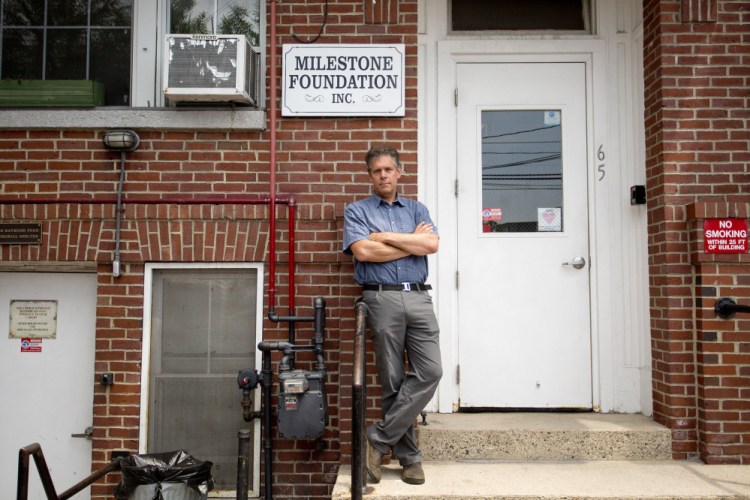The Portland Police Department is launching an initiative to curtail the heroin crisis plaguing the city and state, centering its approach on hiring a substance abuse liaison it will ask to identify drug users and get them the help they need to beat their addiction.
Details of the program will be announced during a news conference at City Hall on Wednesday afternoon, city spokeswoman Jessica Grondin said.
While the city’s plan comes at a time when the demand for help has never been greater, addiction treatment experts in Maine have decried the state’s shrinking treatment options, with the closing of Mercy Recovery Center in Westbrook this summer, as well as the shuttering of a treatment center in Sanford.
The city’s program, called the Law Enforcement Addiction Advocacy Program, or LEAAP, was inspired by a drug diversion program in Seattle and by the city’s success with a mental health liaison, who connects potential clients with resources.
Mayor Michael Brennan said the LEAAP program was designed by a subcommittee that has been working on the opioid crisis for about 18 months. He believes the program will help ease the crisis.
“People in the city are dying,” Brennan said. “People are overdosing at unprecedented rates.”
Heroin overdose deaths have soared statewide since 2012, with 57 in 2014 and 37 through the first six months of this year. The number of people seeking treatment for opiate use climbed from 1,115 in 2010 to 3,463 in 2014, according to the Maine Office of Substance Abuse.
The liaison, expected to be hired early in 2016, will not be a sworn police officer, but will work out of the police department, the mayor said. Other details of the program will be unveiled Wednesday.
Brennan said the liaison will work to identify treatment options and to help connect addicts with other resources, such as housing.
Bob Fowler, executive director of the Milestone Foundation, which operates a Portland detox center and a residential treatment program in Old Orchard Beach, said while it’s true that treatment is scarce, especially for the uninsured, he’s encouraged by the focus on the heroin problem by police agencies.
He said there’s now a recognition among law enforcement that substance abuse is a public health problem. In addition to Portland’s new initiative, the Scarborough Police Department recently started Operation HOPE, which is modeled after a nationally recognized program in Gloucester, Massachusetts. With Operation HOPE, addicts can show up at the police station and get help rather than be arrested. More than 50 people have been helped by Operation Hope so far, according to the Scarborough police. Most of those receiving treatment are being sent to out-of-state programs due to Maine’s limited resources, according to the Portland Recovery Community Center, which helps Scarborough police operate the program.
“It’s notable that police agencies are taking the lead,” Fowler said. “They recognize that this is an issue that the police department can’t arrest their way out of.”
Fowler said those working in the treatment community need to work closely with police, and there are signs that it’s starting to happen.
In Seattle, the diversion program, called LEAD, works by offering treatment, education, loans to start a business, and housing assistance to addicts and low-level drug dealers who would otherwise be spending time in jail or prison, according to a 2011 article in the Seattle Times.
Brennan said that because LEAD has been proven to be effective since it was launched four years ago, Portland incorporated some elements of Seattle’s program into the city’s new initiative.
Send questions/comments to the editors.



